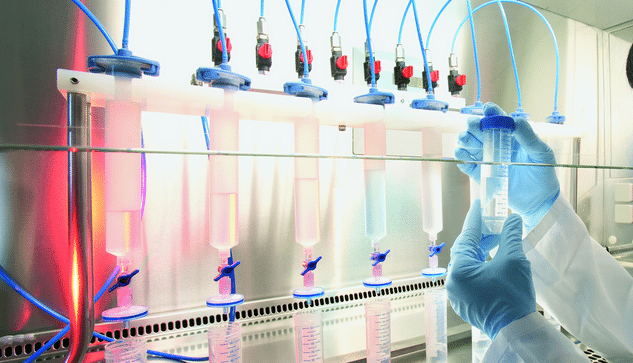
In an industrial environment, machine downtime is a big deal. Keeping machines humming for longer means greater production and maximized use of the asset. Managers understand this, entrepreneurs understand this, but it’s possible that researchers do not. Admittedly, their work is not always geared directly toward profit, and the researchers themselves were usually not the actual investors in the actual equipment, but the overlap from research to industry is still a large one.
Just to get an idea, an MRI scanner or mass spectrometer might cost upwards of $200,000 US dollars. Oddly enough, research equipment will often have astronomical down-times. A team might need the machine for one element of a study, then spend 2 months analyzing the data and moving on to other phases of the project. A million-dollar machine laying dormant for a week is not a likely scene in industry, but in research, it’s often the norm.
To give you an idea of the prices of various pieces of lab equipment:
- Mass Spec – $50K – $200K
- DNA Sequencer – $80K – $700K+
- NMR – $100K – $1MM+
- Flow Cytometer – $50K
- High Content Screening System – $200K-$750K+
With a background in business development, Lab Fellows founder Julio de Unamuno IV saw massive opportunity to make more of the equipment that institutions and universities pay so much invest in. Having his own roots in research at the University of San Deigo (where he received a degree in Biochemistry before getting his MBA) he knew the experience of the research world. He not only sympathized with it’s concerns, but hatched an idea to further leverage it’s resources.
“It’s like Air BnB for life science research,” he tells me. How does that work? Well, if you’re an institution with a mass spectrometer that cost you half a million bucks, you might have your professors and research assistants using the machine 1/20th of the time it hypothetically could be running. Maybe less. $500,000.00 isn’t throw-away money, but there’s only so many researchers and so many projects, so the machine doesn’t get a consistent flow of action.
What if there was massive group of PhD-level researchers and “citizen scientists” who were capable of using a mass spectrometer and were willing to pay by the hour in order to use your machine? What if that machine could be used at two or three times greater frequency – not enough to harm the machine – but certainly enough to make better use of it. The lab wins because they’ve got money that they’d never have otherwise. The “rent-ee” wins because they have research data that they’d never be able to afford otherwise, and society wins because more projects are moving forward to prevent diseases and presumably aim to better human life.
Julio’s enthusiasm comes through immediately in his description of what this project would allow for. The obvious initial benefit is putting scientific tools into the hands of people eager to work on important problems. He explains that Lab Fellows is intended to have a screening process to ensure that each lab would be able to decide who to allow into their facilities based on past research, specific expertise, degrees, or other criterion (to ensure the safety of the assets).
Second, this project opens up new opportunities for larger businesses to pay for and facilitate more experimentation. “There are a ton of projects out there being run… and it takes about 20 years to take an idea and get it to market in the pharmaceutical space.” That’s a lot of time, and it’s a lot of careful, orchestrated research and testing. Julio explains that big drug companies make a massive percentage of their revenues from “older” medications, because new drugs involve such a long turn-around. “There isn’t access to the equipment to run the hundreds of thousands of tests you have to run in order to get that serendipity, to get those ideas and spontaneity going.” For billion-dollar pharmaceutical companies, spontaneity is pretty darn important to staying afloat – or pulling ahead of the competition.
What this project represents is “enabling a market,” in this case research. Just as Air BnB opened up travel to new opportunities, and Craigslist opened up classified listings, Julio thinks we can tackle the concern of research access – and more thoroughly proliferate good science because of it.
Image: research.usc.edu







